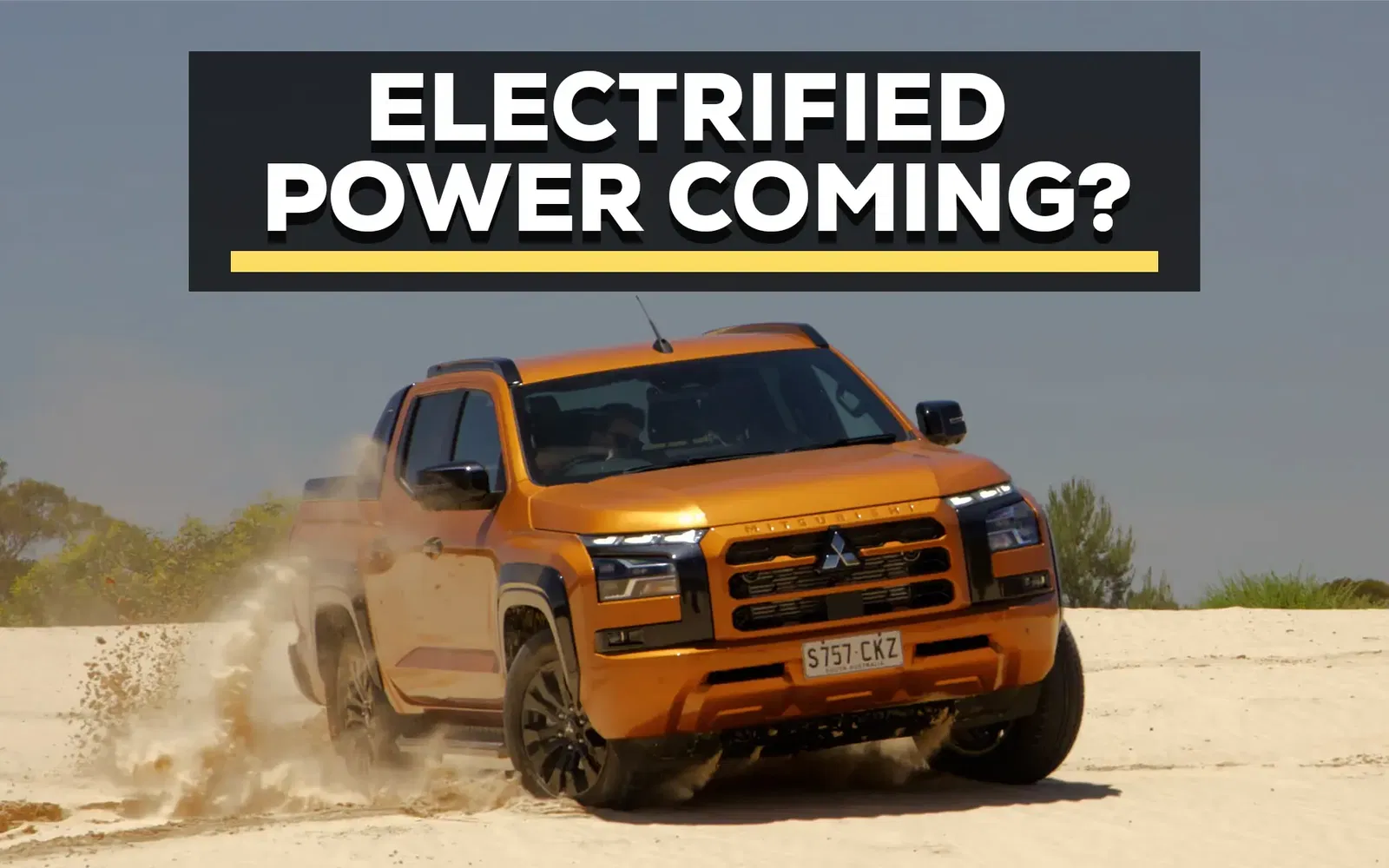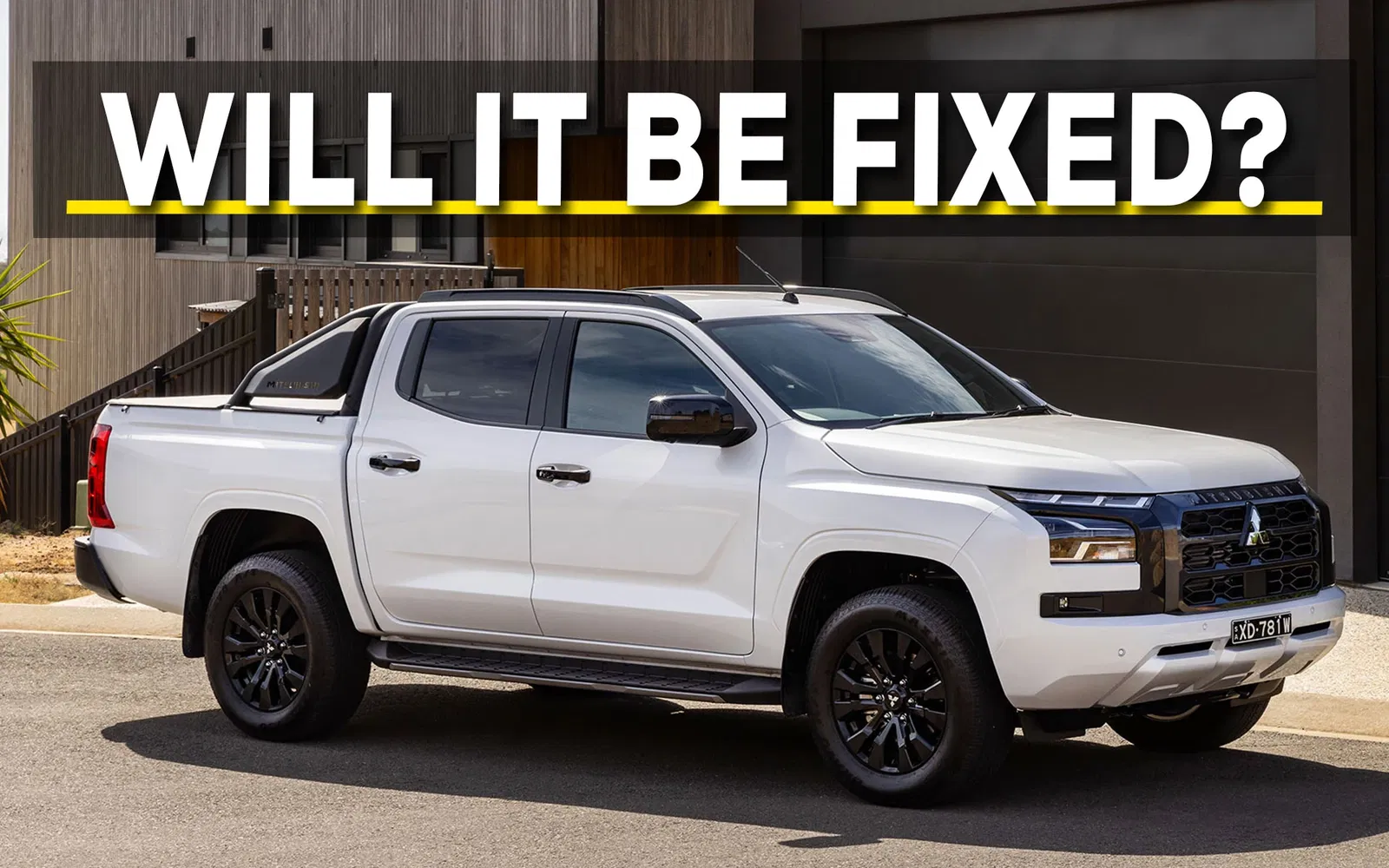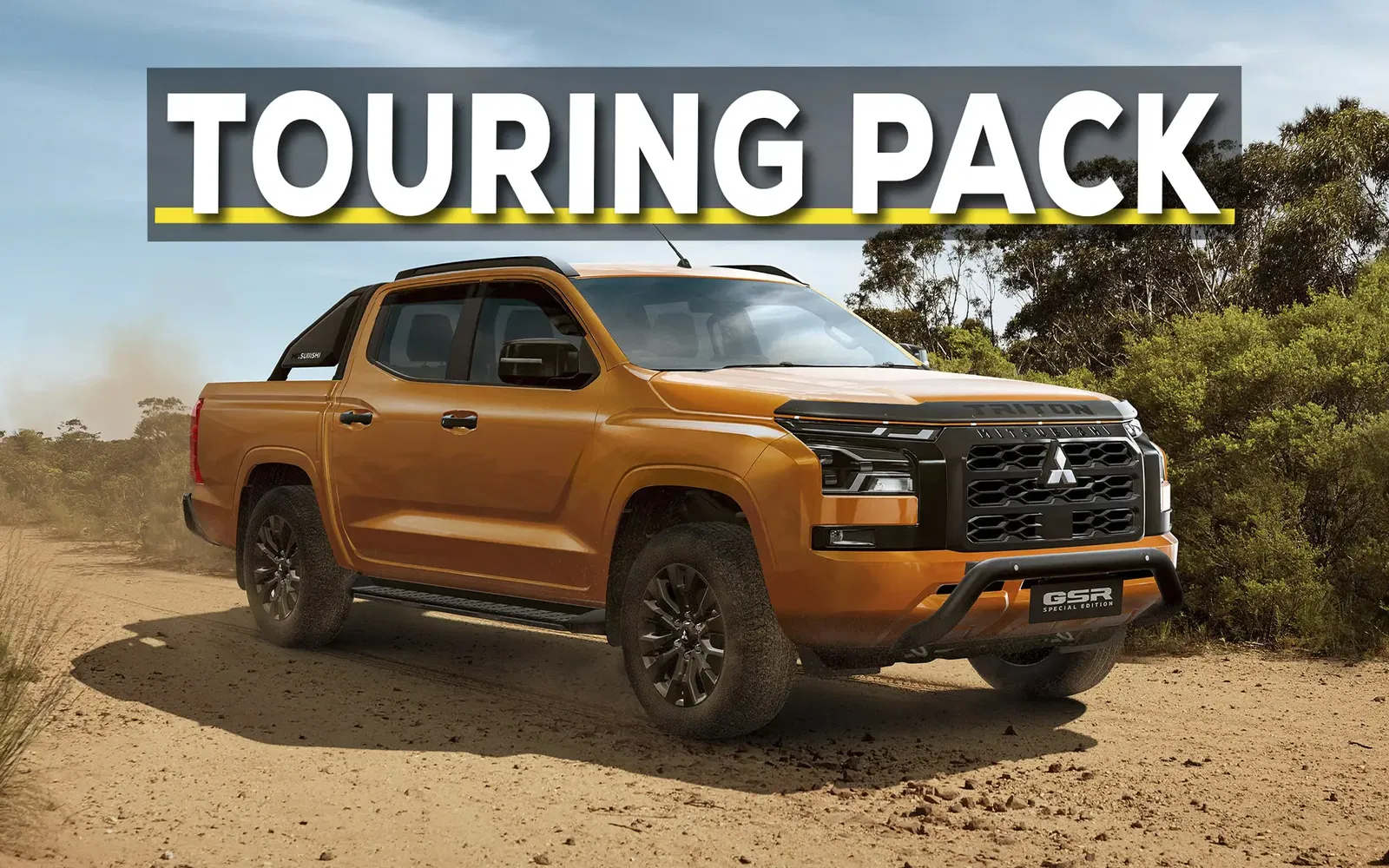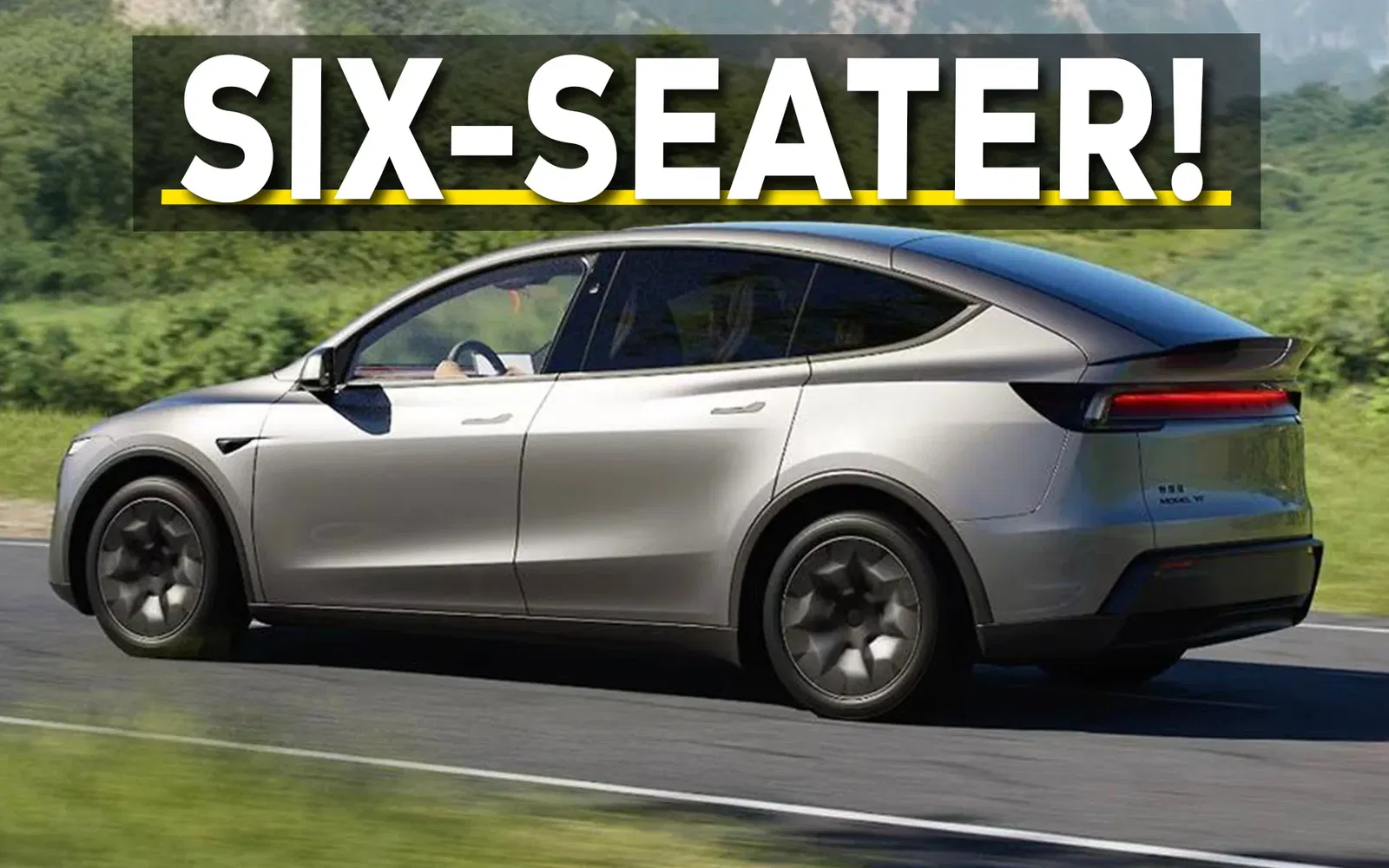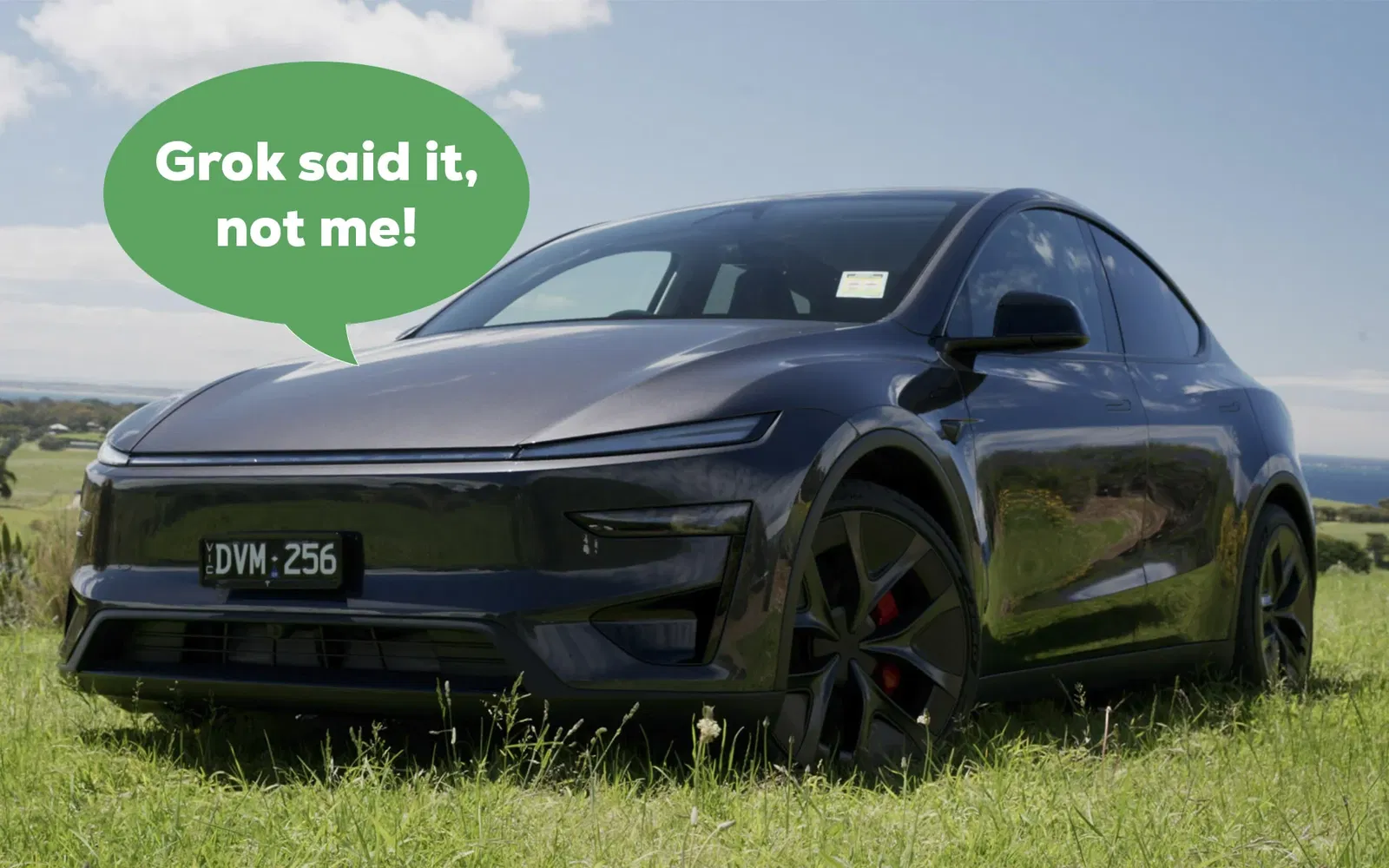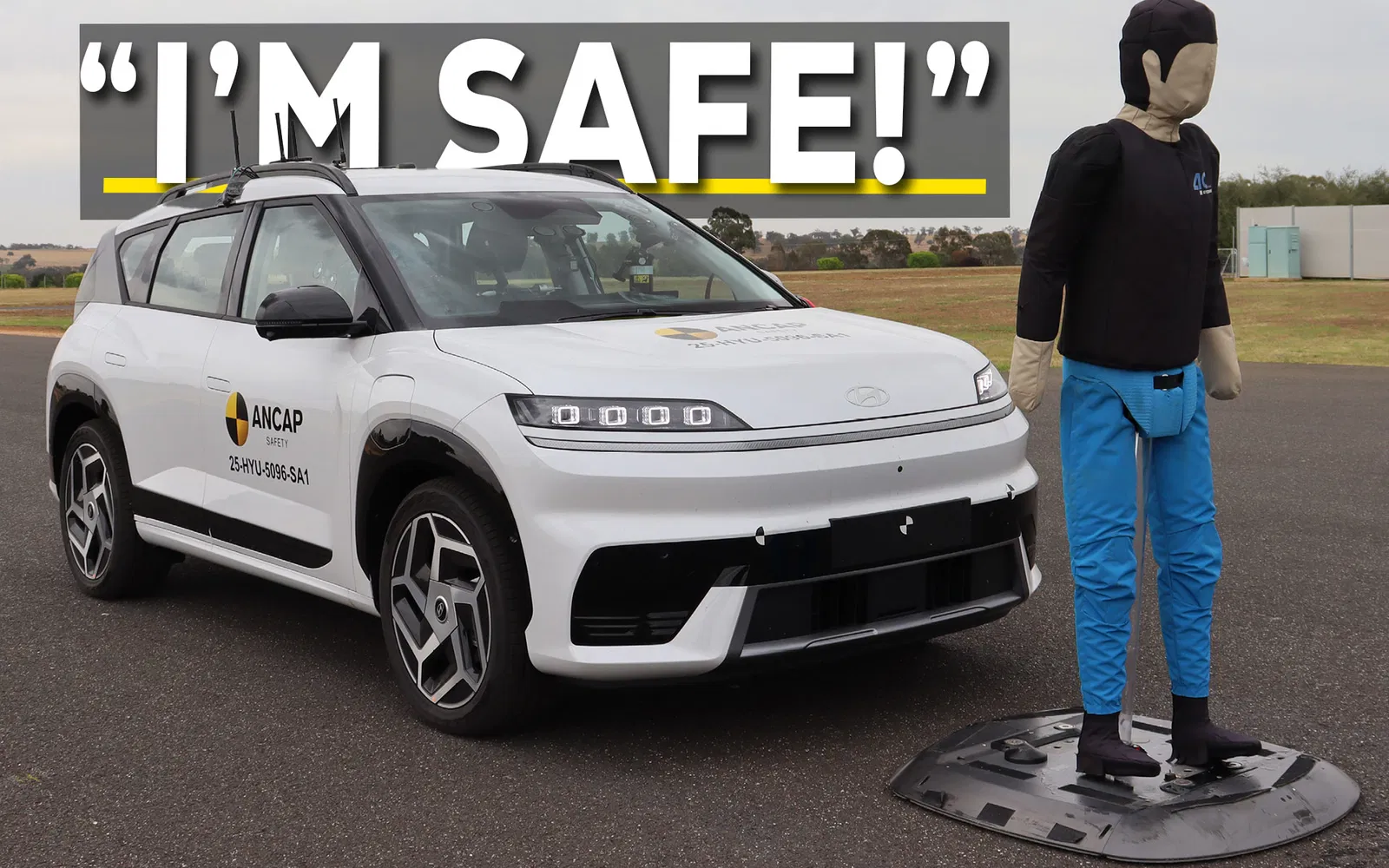Electrified Triton utes are on Mitsubishi's radar in Australia, with multiple powertrain options currently under study, according to the brand.
General Manager of Product Strategy and Product Public Relations, Bruce Hampel, told CarSauce at the local launch of the 2026 ASX that Triton electrification is “definitely on the cards.”
“...we’ve got our options under study at the moment in terms of PHEV technologies. We’re closely watching the OEM competitors that have entered into that space,” said Hampel.
Should a PHEV Triton become available in Australia in the future, it wouldn’t be the first electrified ute on the local market.
The Ford Ranger – Australia’s best-selling ute – is sold with a plug-in hybrid option. A more recent challenger in the ute space, the BYD Shark 6, is sold exclusively with a plug-in hybrid powertrain, while GWM offers both PHEV and full-hybrid versions of the Cannon Alpha.
All variants of the Mitsubishi Triton currently on sale in Australia are powered by a 2.4-litre bi-turbo diesel engine producing 150kW and 470Nm – mated to either a six-speed manual or automatic transmission – in either two-wheel drive or four-wheel drive configurations.
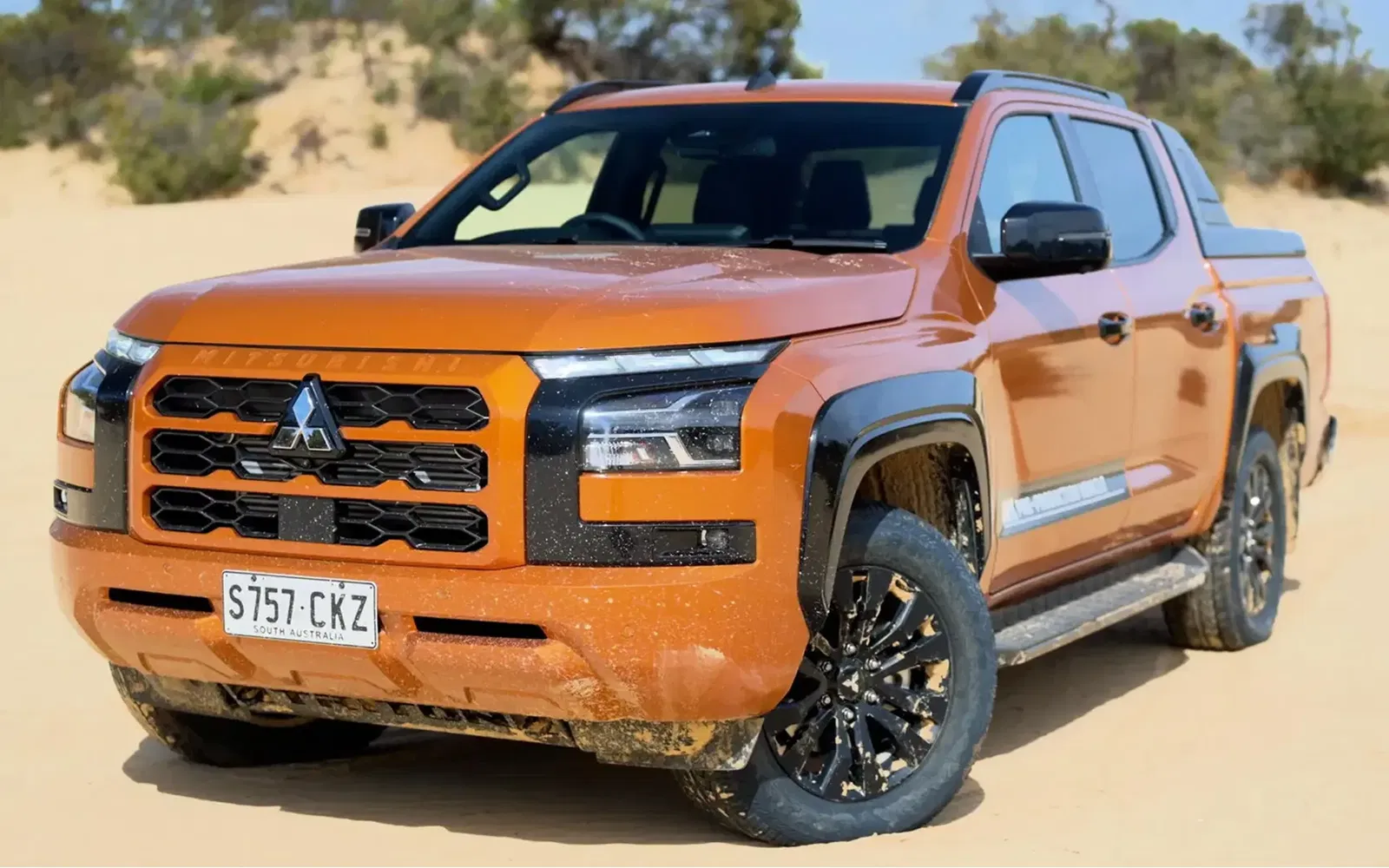
NVES (The New Vehicle Efficiency Standard), introduced in January this year, has set the current CO2 limit for Light Commercial Vehicles at 210g/km for 2025.
The Mitsubishi Triton’s emissions vary depending on the model, ranging from 195g/km in the GLX Single Cab Chassis Manual variant to 203g/km in many of the automatic variants.
While all Triton models currently meet the NVES requirements, when the target drops to 180g/km in 2026 – gradually decreasing each year from there – all variants of Mitsubishi’s ute are set to incur penalties.
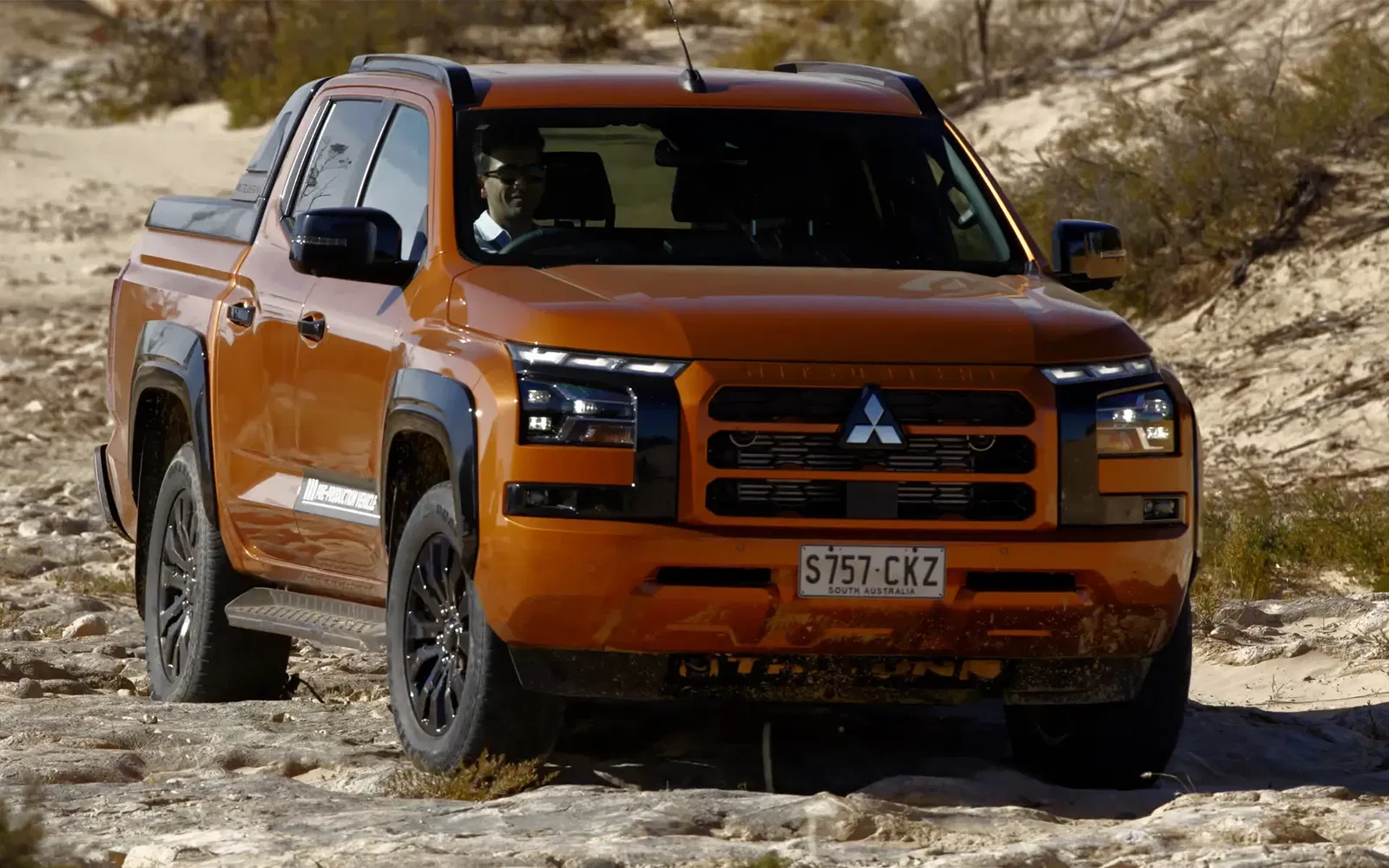
If it comes to be, a plug-in hybrid variant of the Triton would assist in offsetting the NVES penalties.
According to Hampel, the views of Mitsubishi’s fleet partners will be a contributing factor in the brand’s decision on whether to introduce an electrified Triton.
“We’re discussing with our large fleet partners as well, as to what their future needs and wants are in terms of CO2 reductions for their large fleets going forward.”
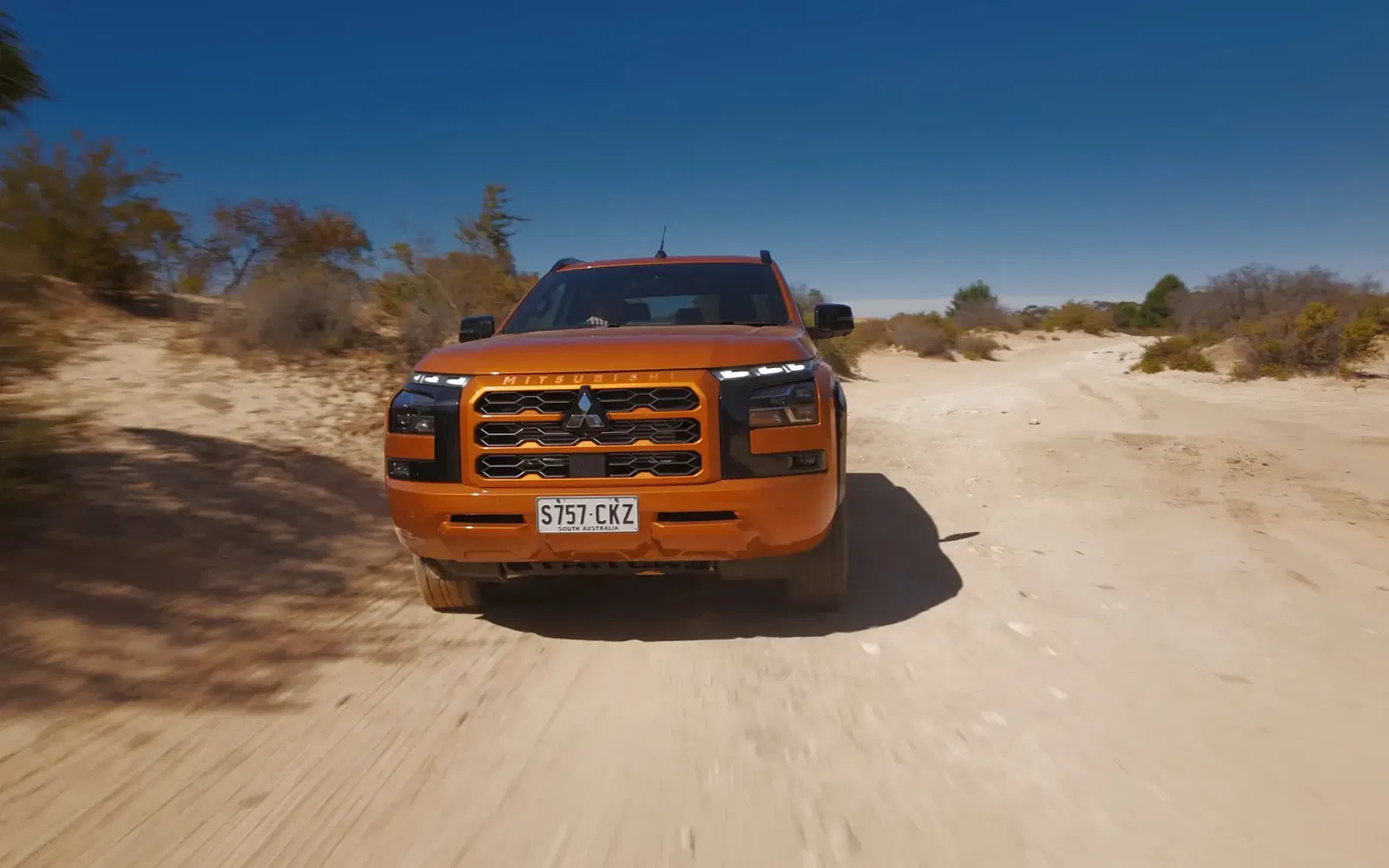
While Hampel largely discussed the potential likelihood of a PHEV-powered Triton, a Mitsubishi Motors Australia spokesperson told CarSauce that multiple powertrain options are still under consideration for the current-generation Triton.
“Koichi Namiki, MMC’s Senior Executive Officer for Product Strategy, has previously outlined that a range of electrified options are under study for the existing Triton. This includes studies on BEV, PHEV and other electrification forms. However, nothing has been confirmed at this stage," the spokesperson said.
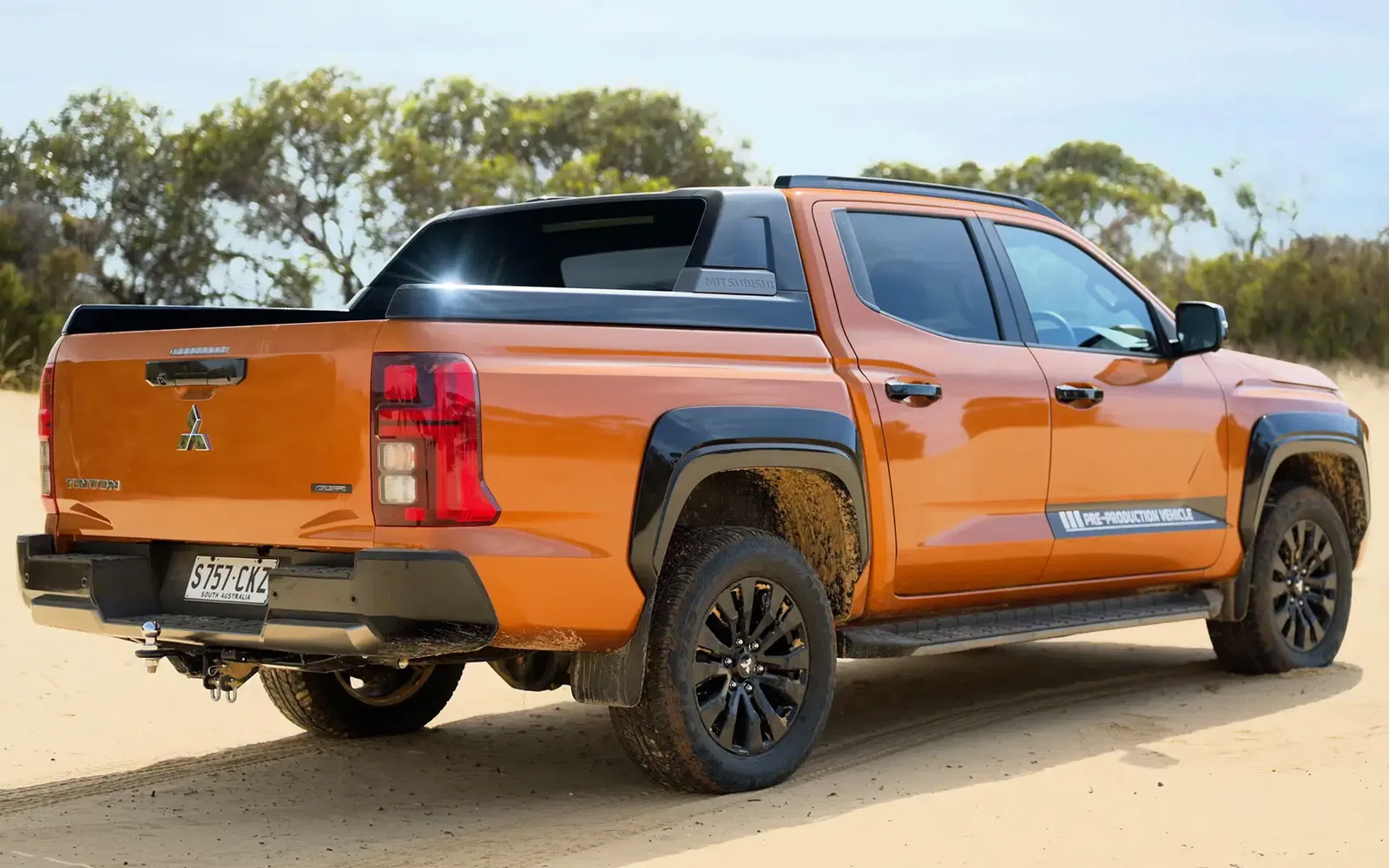
"We continue to investigate the right powertrain mix for the Australian market overall, and a multi solution approach – where we deploy a range of ICE and electrification, depending on segment and customer need – is our current focus.”
Mitsubishi’s electrified range in Australia currently consists of the PHEV Outlander and Eclipse Cross variants, each powered by a 2.4-litre four-cylinder petrol engine and dual electric motors., although specifications vary slightly between the two.
In the case of the Outlander PHEV, the system has a combined output of 185kW and 450Nm, while electricity is sourced from a 20kWh battery. While official plans are yet to be confirmed, this could be a possible powertrain option for the PHEV Triton.
FAQ
Has an electrified Mitsubishi Triton been officially confirmed for Australia?
While an electrified Mitsubishi Triton has not been officially confirmed for Australia, electrified powertrains are under evaluation according to Mitsubishi Motors Australia.
What kind of engine does the Mitsubishi Triton currently have in Australia?
The Mitsubishi Triton has a 2.4-litre bi-turbo diesel engine producing 150kW and 470Nm, mated to either a six-speed manual or automatic transmission.
Do Mitsubishi currently sell and EV or PHEV Triton in Australia?
There is no electrified Mitsubishi Triton currently on sale in Australia.
Sign up to our newsletter
Be the first to know when we drop new car reviews.
.avif)

